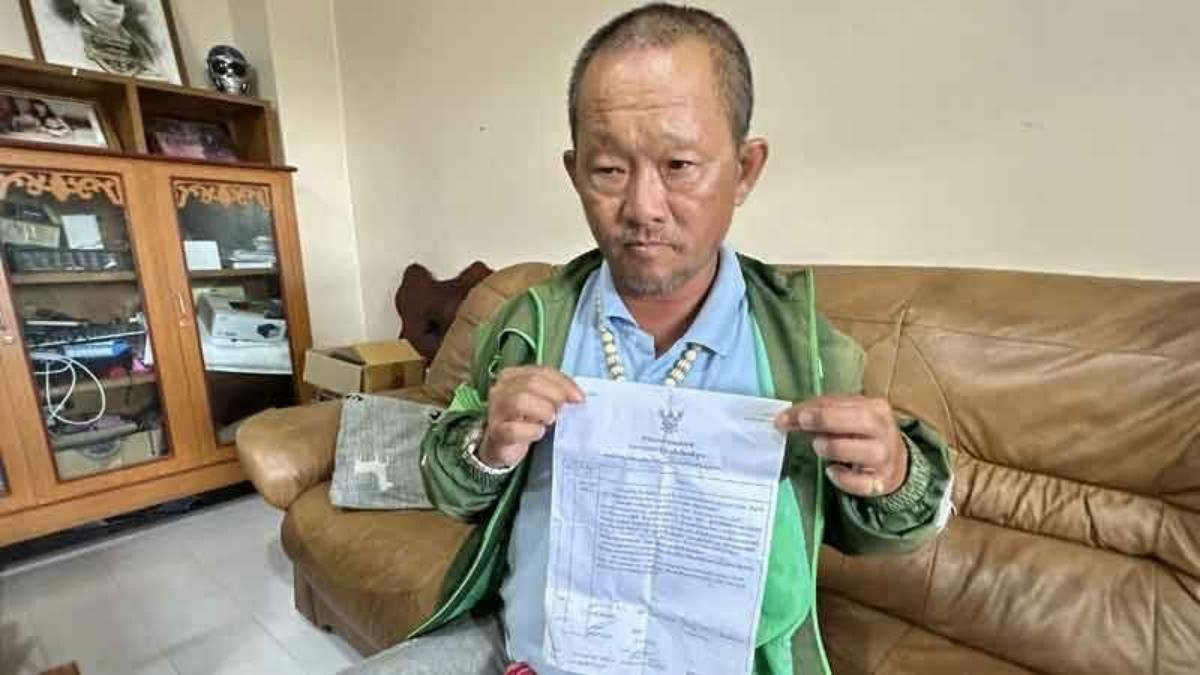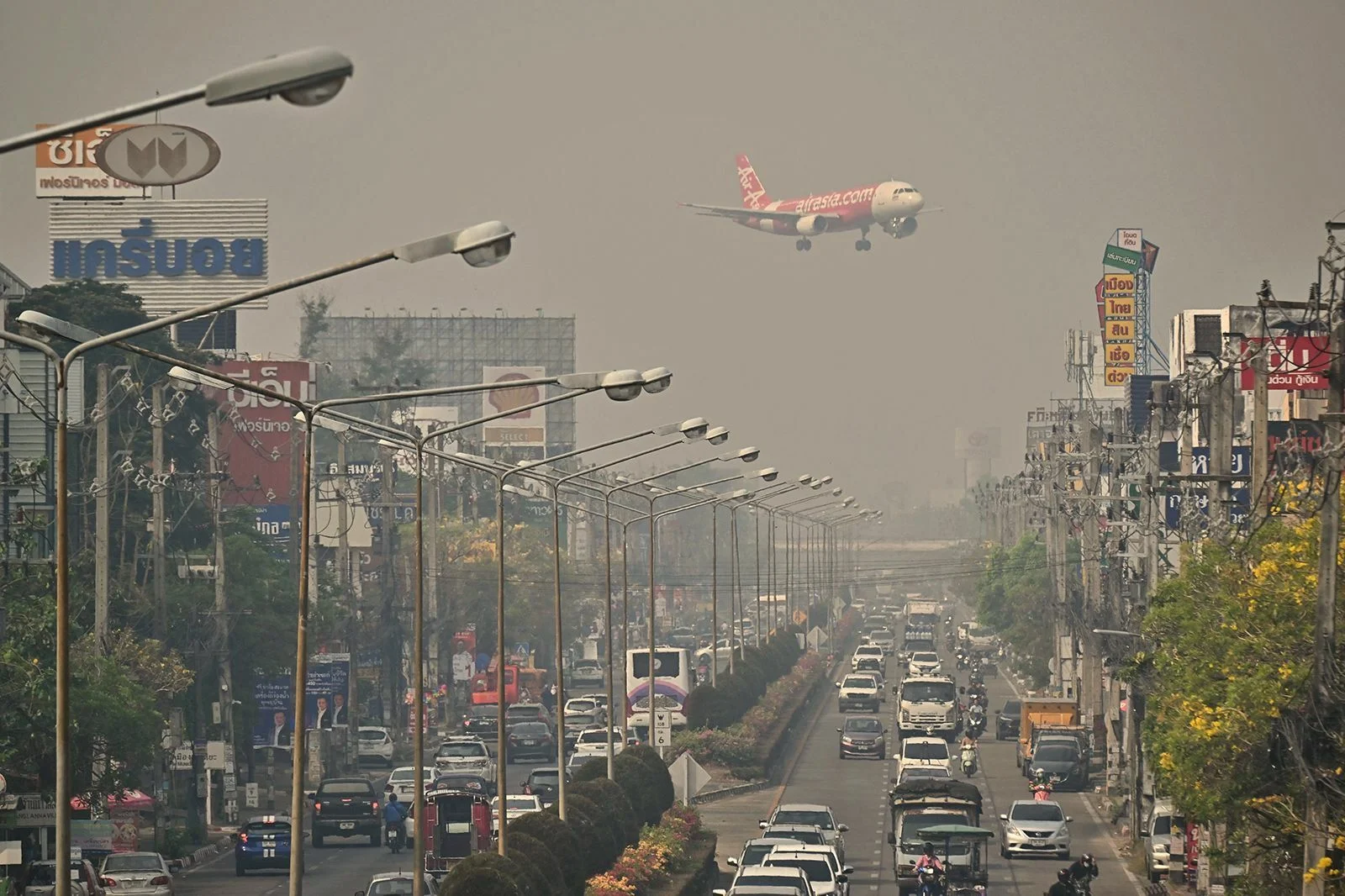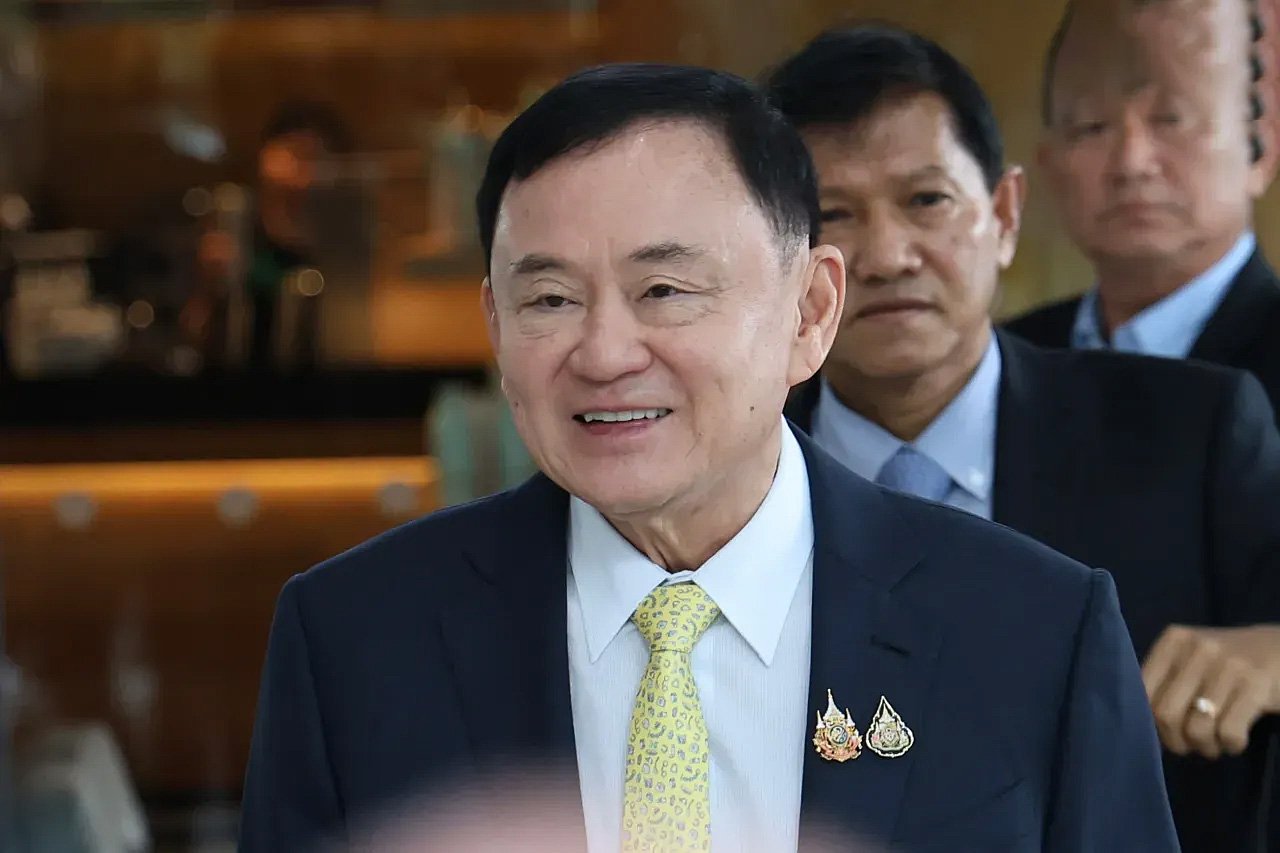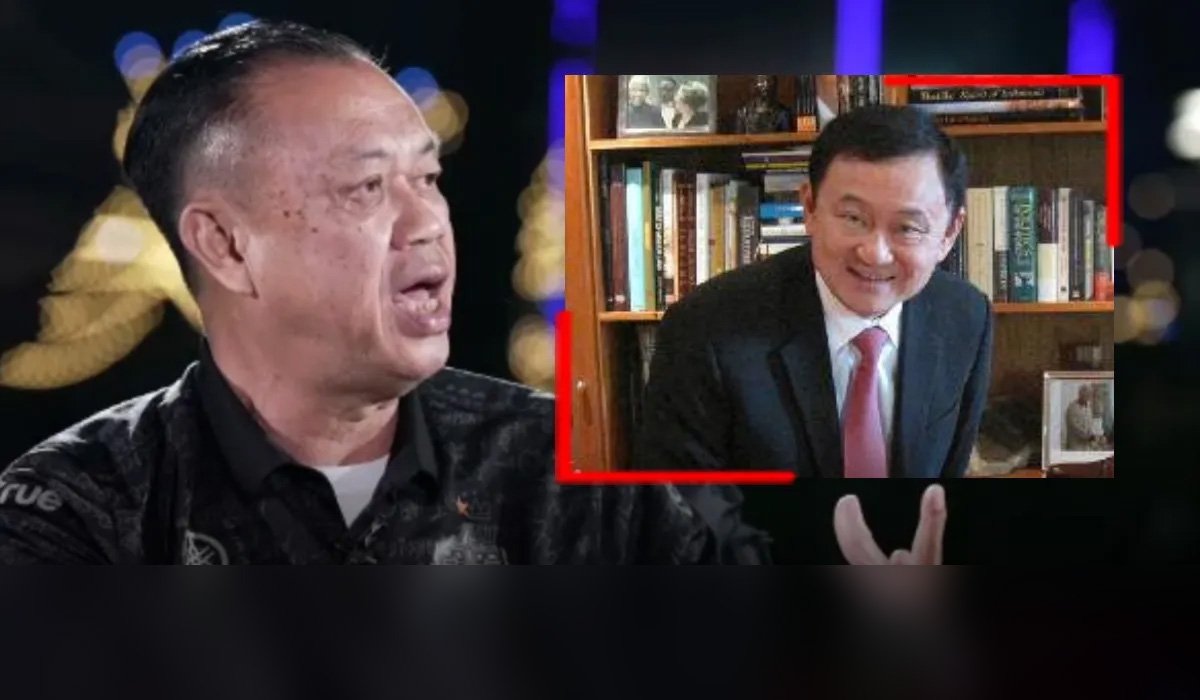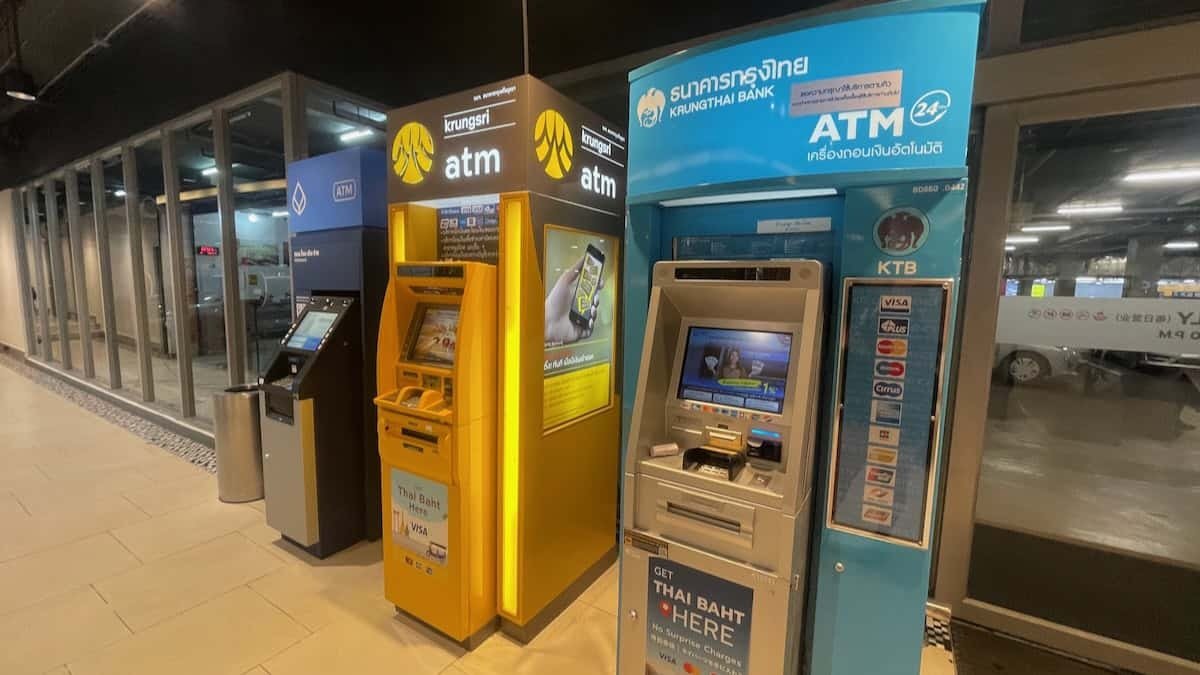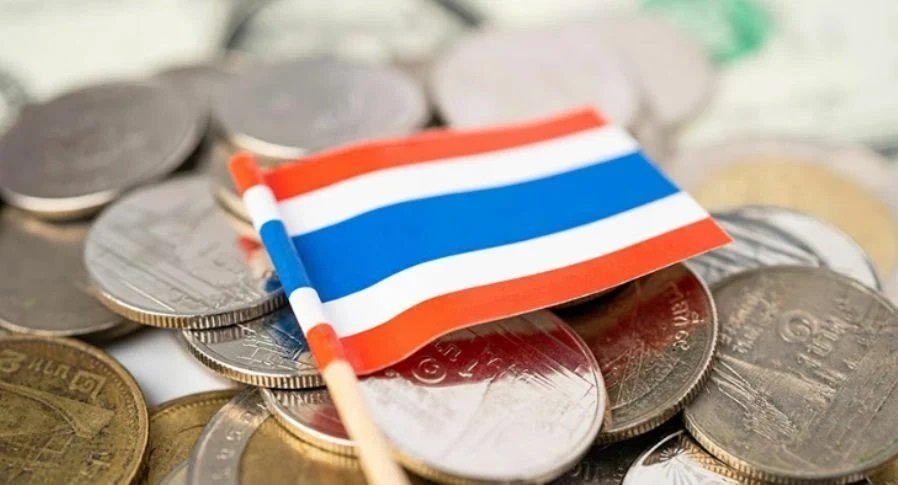Nyheter fra Thailand - levert av ASEAN-now (Tidligere Thai Visa)

My RSS Feed
- Thai father’s plea to find missing daughter and 262,000 baht

A father is pleading for help to find his 15 year old daughter, who has been missing for over two weeks, along with nearly 300,000 baht. He suspects someone has influenced her. The money from selling inherited land was intended for buying property.Narongchai, a 51 year old rider from Prasat, Ban Dan, Buriram, shared his ordeal, seeking media assistance to find his daughter, a vocational student, who vanished on October 4. The family has been anxiously waiting for more than two weeks without any news.
Narongchai explained that in April, he received 262,000 baht (US$7,910) from selling his late mother’s land, a sum shared equally among his siblings. He and his wife decided not to deposit the money in their accounts, fearing they might spend it before buying a 320,000 baht (US$9,660) plot of land to build a house.
Instead, they put the money in their daughter’s account, believing she wouldn’t touch it as she was a well-behaved girl who rarely left home or socialised.
However, things took a concerning turn when Na, an online seller around 35 years old, befriended their daughter. Na frequently took the girl out for dinner, initially once or twice a week, which Narongchai didn’t mind, thinking it was just an adult showing affection. But the outings became more frequent, causing Narongchai to warn his daughter about focusing on her studies.In August, Narongchai mentioned to his daughter that he planned to use the money to buy the land soon. His daughter responded by saying she was busy.
Missing daughter
In the following month, she claimed her bank account was locked, preventing any transactions. Narongchai sought advice and was told to visit the bank. However, his daughter kept making excuses to avoid the visit.
On October 4, when Narongchai told her they would go to the bank together the next day, she immediately rode her motorcycle away and has been unreachable since.
On October 7, Narongchai reported the matter to Police Lieutenant Colonel Settaphong Meeklom at the Mueang Police Station, seeking help to track down his missing daughter and the money in her account.Attempts to call her have failed; communication has been limited to LINE application chats, where she mentioned she was looking for work, but she avoided calls to prevent revealing her location, reported KhaoSod.
Narongchai strongly believes someone has influenced his daughter to either take the money or leave home. He urges police to find his daughter and investigate the money’s transfer history, suspecting those who took her out might be involved in wrongdoing.
by Bright Choomanee
Picture courtesy of KhaoSodSource: The Thaiger
-- 2024-10-18
18 October 18 20241341065 - Thai Officials Face Probe Over Fatal School Bus Inferno

In a sobering turn of events, a deadly school bus fire that claimed the lives of 23 individuals, including students and teachers from Uthai Thani, is now the subject of a comprehensive investigation involving multiple government agencies in Thailand.
The tragic event occurred on October 1 during a field trip, prompting a thorough inquiry into the series of approvals and inspections that preceded the disaster.
The Central Investigation Bureau's Deputy Commissioner, Pol. Maj. Gen. Jaroonkiat Pankaew, has disclosed that the probe is delving into the possible negligence and complicity of government officials.
The investigation, spearheaded by the Office of the Anti-Corruption Commission (NACC) and the Public Sector Anti-Corruption Commission (PACC), suggests that various state bodies could face legal action for their roles in the tragedy.
PACC Secretary-General Phumwisan Kasemsuk has stated that officials responsible for permitting conditions that led to the incident may be held accountable.
While specific details are withheld to preserve the integrity of the investigation, there is a strong commitment to pursuing justice for the victims and their families.
Senator Alongkot Worawi has independently lodged a complaint with the police's Anti-Corruption Police Division, specifically targeting the Singburi Provincial Transport Office and the engineers responsible for inspecting the ill-fated bus.
Central to his concerns is the adequacy of the technical examination, particularly the installation of the gas tanks. The senator has suggested that negligence in this area may have contributed to the fire, calling for an expanded investigation into the transport officials' potential liability.
As investigations continue, the focus remains firmly on holding accountable those whose actions, or lack thereof, might have contributed to a preventable tragedy, shining a spotlight on the critical need for enhanced safety measures in public transport, reported TNA and Pattaya Mail.
Picture courtesy: Thai Rath
-- 2024-10-22
22 October 22 20241341347 - Thailand’s smog showdown: Clearing the air with a bold 30% cut

In a bid to wipe the smog off the map, Thailand’s Pollution Control Department (PCD) is gearing up for a 2024 blitz on air pollution, aiming to slash hotspots by a daring 30%.PCD Chief Preeyaporn Suwanaked held court at a buzzing press conference, revealing the National Environment Board’s stamp of approval on an ambitious blueprint to combat haze. This all-encompassing plan targets smog culprits lurking in forests, farms, and cityscapes.
With a sharp eye on cutting traffic snarls, the PCD’s playbook includes trimming public bus fares, putting vehicles under the microscope, and rolling out work-from-home days in bustling urban hubs.
Turning up the heat on fire prevention, the department has drawn a risk map for 14 forest complexes across the northern and northeastern landscapes, with new rules demanding farmers log in with government officials before sparking any flames, said Preeyaporn.
“Our mission is crystal clear: we’re out to trim nationwide hotspots by a robust 30% next year.”On the meteorological front, Thailand is sailing through the La Nina phase, stretching from September to March, bringing with it torrents of rain that are likely to dampen hotspot numbers compared to past years.
Yet, even as cleaner skies beckon, Preeyaporn assured the public that vigilance remains the watchword. The PCD is set to team up with allied agencies, ready to tackle any pollution setbacks head-on.
Meanwhile, Sakda Tridech, the PCD Air Quality and Noise Management Division chief, issued a heads-up for Bangkokians as he predicted a spike in pesky particulates next month, thanks to an impending cold blast blowing in from China.
Only two weeks ago, Bangkok and its neighbouring provinces awoke to find themselves enveloped in a thick blanket of smog, as pollution levels reached dangerously high levels. The stagnant air trapped hazardous levels of PM2.5, leaving the city gasping for breath.
According to the Pollution Control Department, PM2.5 (tiny particles less than 2.5 microns in diameter) breached the safe threshold of 35 microgrammes per cubic metre in several areas of Bangkok and nearby provinces.
By 11am, October 8, readings across the capital ranged from 37 to 48.8µg/m3, with Sathorn district topping the chart. Neighbouring regions like Nakhon Pathom, Nonthaburi, Samut Prakan, and Samut Sakhon were also suffocating under similar levels of smog.by Bob Scott
Picture courtesy of CNNSource: The Thaiger
-- 2024-10-22
22 October 22 20241341349 - Fresh Push to Send Thaksin Back to Jail Intensifies

The Thai political landscape is witnessing yet another ripple as a fresh move by former Democrat MP Charnchai Issarasenarak seeks to have ex-Prime Minister Thaksin Shinawatra returned to jail.
Thaksin, a prominent figure in Thailand's political scenario and father of current Prime Minister Paetongtarn Shinawatra, has come under scrutiny once more for allegedly circumventing his jail term.
Having been granted a royal pardon last year upon his return from a self-imposed 17-year exile, Thaksin's initial eight-year sentence for power abuse was reduced to a single year.
However, it is claimed that Thaksin has not served this year-long sentence in full, avoiding physical incarceration altogether. Instead, he spent six months in a private ward at the Police Hospital before his release on parole earlier in the year, sparking accusations of legal manipulation.
Charnchai is appealing to Thailand's Supreme Court to rule retroactively, asserting that Thaksin had utilised his influence to evade jail, a move that is "categorically against the law."
The crux of the matter lies in whether the Corrections Department legally transferred Thaksin to the hospital. Normally, such a transfer would necessitate prior approval from the Criminal Court, something that allegedly did not occur in this case, regardless of Thaksin's reported "critical illness."
Should the Supreme Court rule in favour of Charnchai's petition, Thaksin could face returning to prison to complete his sentence. Further, Corrections Department Director-General Sahakarn Petchnarin could also face misconduct charges if found complicit.
This development adds another layer to the saga surrounding the Shinawatra family and their ongoing influence in Thai politics. The outcome of this legal challenge will undoubtedly impact the country's political narrative in the coming months, reported Thai Newsroom.
Picture courtesy: Thai Rath
-- 2024-10-22
21 October 21 20241341324 - Newin Rejects Thaksin's Casino Plan for Thailand

Picture courtesy: Sanook
In a significant political development, Newin Chidchob, a key political figure in Thailand, has openly dismissed Thaksin Shinawatra's proposal to legalise casinos. This decision came out during a private discussion between these two influential persons earlier this month.
Thaksin, father of current Prime Minister Paetongtarn Shinawatra, has been trying to gain support for his casino initiative as part of larger entertainment complexes in popular tourist destinations such as Bangkok, Phuket, and Pattaya, where gambling is currently illegal. These proposed casinos would be part of grand entertainment centres aiming to attract tourism and boost the economy.
Despite Thaksin's efforts, Newin maintained a clear stance against the casino plan, expressing concerns over potential social and economic issues, such as debt and addiction among the public. Newin's stance is pivotal since his Bhumjaithai Party holds considerable influence within Thailand's ruling coalition, which includes Thaksin's Pheu Thai Party.
However, it is understood that Newin is not entirely against the notion of building entertainment complexes. He may support such projects on the condition that they exclude gambling activities. This stipulation underscores a key difference in vision between the two political figures.
Thaksin has been under scrutiny for potentially overstepping legal and political boundaries by allegedly wielding undue influence over his daughter's government and coalition partners. In light of this, investigations are already underway by several bodies, notably the Election Commission and Constitutional Court, to examine these allegations further, reported Thai Newsroom an Reuters.
In conclusion, while Thaksin continues to push forward ambitious projects, including the joint Thai-Cambodian initiative in the Gulf of Thailand, his casino plan faces a formidable challenge with Newin’s rejection. New developments in this political story could significantly impact Thailand’s legal and economic landscape in the near future.
-- 2024-10-21
21 October 21 20241341295 - Thailand and Hong Kong Join Forces to Create ASEAN Financial Hub
Thailand has taken another significant step towards solidifying its position as a formidable player in the global financial sector. The country is actively pursuing a partnership with Hong Kong to establish a financial hub intended to connect ASEAN markets. This announcement came from Deputy Finance Minister Paopoom Rojanasakul following a meeting with Hong Kong’s Financial Secretary, Paul Chan, during the recent APEC Finance Ministers’ Meeting in Lima, Peru.
This collaboration marks a strategic priority for Thailand’s current government, aiming to leverage its geographic prominence as a gateway to ASEAN markets, especially in rapidly growing economies like Cambodia, Laos, Myanmar, and Vietnam. The initiative promises mutual advantages, enhancing the connectivity between Hong Kong, ASEAN, and China through the fluid exchange of trade and investment.
To bolster this ambitious vision, Thailand plans to reform its financial regulations, focusing on flexibility and transparency to attract investment. These reforms will introduce incentives such as tax benefits, furthering the development of a modern financial ecosystem. Paopoom highlighted the continued success of cross-border payment systems, such as the integration of Thailand’s PromptPay and Hong Kong’s Faster Payment System, underscoring the already solid cooperative relationship.
The meeting concluded with both sides expressing optimism about future financial collaboration as they exchanged ideas on expanding their economic and financial ties. With Hong Kong as Thailand’s 13th-largest trading partner, their trade relations have seen a substantial increase, with an overall two-way trade of US$13.7 billion in 2023. The formation of a financial hub marks yet another pivotal step towards fostering economic stability and innovation within the ASEAN and APEC regions.
File photo for reference only
22 October 22 20241341394 - Thai Banks Record Profit Rise Amid Economic Uncertainty in 2024

The Thai banking sector has witnessed a modest rise in profits for the first nine months of 2024, led by increased interest and fee incomes. A collection of 10 banks listed on the Stock Exchange of Thailand reported a combined net profit of 159 billion baht, marking a 3.49% year-on-year increase.
Kasikornbank emerged as a frontrunner with a net profit boost of 15.4%, reaching 38.1 billion baht. TMBThanachart Bank outpaced others in profit growth, surging by 17% to 15.9 billion baht. However, six banks, including Kiatnakin Phatra Financial Group, suffered profit declines, with KKP tumbling by 25%.
Despite these gains, uncertainty looms over Thailand's economic landscape. Floods, baht fluctuations, and a global economic slowdown threaten stability. Kasikornbank's CEO, Kattiya Indaravijaya, advocated for supportive measures such as lowering loan interest rates to help flood-affected customers.
Elsewhere, SCB X, the parent company of Siam Commercial Bank, reported a slight profit decline due to a one-off subsidiary sale loss and reduced incomes. Meanwhile, Bank of Ayudhya experienced a 7% profit drop, impacted by higher credit loss provisions and reduced loans, indicating caution in an uncertain economic climate.
With potential growth on the horizon, banks remain vigilant, bracing for continuing challenges affecting Thailand's financial sector.
File photo for reference only
22 October 22 20241341410 - Supercar convoy causes major delays on M6 motorway (video)

A convoy of luxury supercars obstructed traffic on the M6 motorway, causing significant delays. The incident, captured on video and posted online, has sparked heated discussions among netizens.A video posted by the popular page “อยากดังเดี๋ยวจัดให้ รีเทริน์ part 6” shows a line of luxury supercars, led by Ferraris, cruising along the Bang Pa-in to Nakhon Ratchasima stretch of the M6 motorway.
Police vehicles accompanying the convoy prevented other drivers from overtaking, forcing the person filming to drive at 60 kilometres per hour. The driver, who had pressing matters to attend to, felt the convoy was obstructing traffic.
“Voices of taxpayers like us want to complain. Why are luxury cars allowed to have activities without any public announcement? Road users are inconvenienced,” read the post accompanying the video.
The incident took place yesterday, October 5, on the M6 motorway in Lam Takhong. The convoy of supercars caused a significant traffic build-up behind them as frustrated drivers were unable to pass.“This is a hot, fresh incident. Why must we drive and create such trouble? Everyone has their own business to attend to. We want everyone to help voice out,” the post continued, reported KhaoSod.
The video quickly gained traction, with numerous comments pouring in. Some speculated whether the convoy was part of a film shoot or a promotional event, questioning the necessity and the lack of prior public notification.
In related news, a great number of people have read the book or seen The Horse Whisperer movie, now get ready for the buffalo whisperer after a video shared by Bang Chan Police Station went viral showing a Thai officer whispering sweet nothings in the ears of two buffaloes blocking a road in Bangkok.
The Horse Whisperer is a 1998 movie based on the 1995 novel of the same name. It’s doubtful whether there will be a sequel based on the Thai officer’s Dr Doolittle-esque animal-talking skills but his actions brought a smile to the faces of thousands on social media.
by Bright Choomanee
Picture courtesy of KhaoSodSource: The Thaiger
-- 2024-10-07
7 October 07 20241340028 - Thailand to tax residents’ foreign income irrespective of remittance

The Revenue Department of Thailand will amend a law to tax individuals with foreign income, even if that income is not brought into Thailand.
Director-General of the Revenue Department, Kulaya Tantitemit stated that the current tax law mandates individuals residing in Thailand for over 180 days per year to pay taxes on foreign income if it is brought into the country.
This income is currently subject to personal income tax payments to the department. The department is now working to amend the law based on the principle of worldwide income.
This principle taxes individuals based on their residency within the country, irrespective of whether the income is sourced domestically or internationally.
Kulaya mentioned plans to expand the tax base by requiring platforms with an income of 1 billion baht or more to report their sources of income.
She added that the department will use this information to verify their tax compliance.
Previously, the department revised the criteria for tax residency, mandating that individuals residing in Thailand for at least 180 days per year and earning foreign income must pay personal income tax if that income is brought into the country within the same year it was earned.
However, this rule will be revised again, effective from 2024, requiring tax payment on foreign income regardless of when it is brought into the country, reported Bangkok Post.
By Ryan Turner
Image courtesy of Thailand Elite Visas
5 June 05 20241329034 - Bangkok Urges Public to Avoid Bread Baskets for Loy Krathong Festival

Ahead of the Loy Krathong festival on November 15th, Bangkok Metropolitan Administration (BMA) is urging citizens to stop floating bread-made "krathong" baskets in local water bodies. While typically used in the festivity's ritual, these bread baskets are raising environmental concerns.
The BMA's Environment Department highlights the environmental threat posed by excessive bread krathong use. While theoretically edible for fish, leftover bread can rot, diminishing oxygen levels and harming aquatic life. Evidence from last year's event at Peace Park revealed ponds overwhelmed with abandoned krathong materials, primarily bread, causing major pollution and fish deaths.
Following the festival, extensive efforts were needed to restore the park’s ecosystem. Officials drained the pond, treated it with lime, and refilled it with fresh water—a recovery process spanning four months.
Previously, krathong made of Styrofoam were prohibited by the BMA, causing a rise in alternate materials like bread and banana trunks. The BMA advises festival-goers to reconsider their krathong choices in favour of more sustainable options, safeguarding Bangkok’s aquatic environments.
File photo for reference only
22 October 22 20241341403

